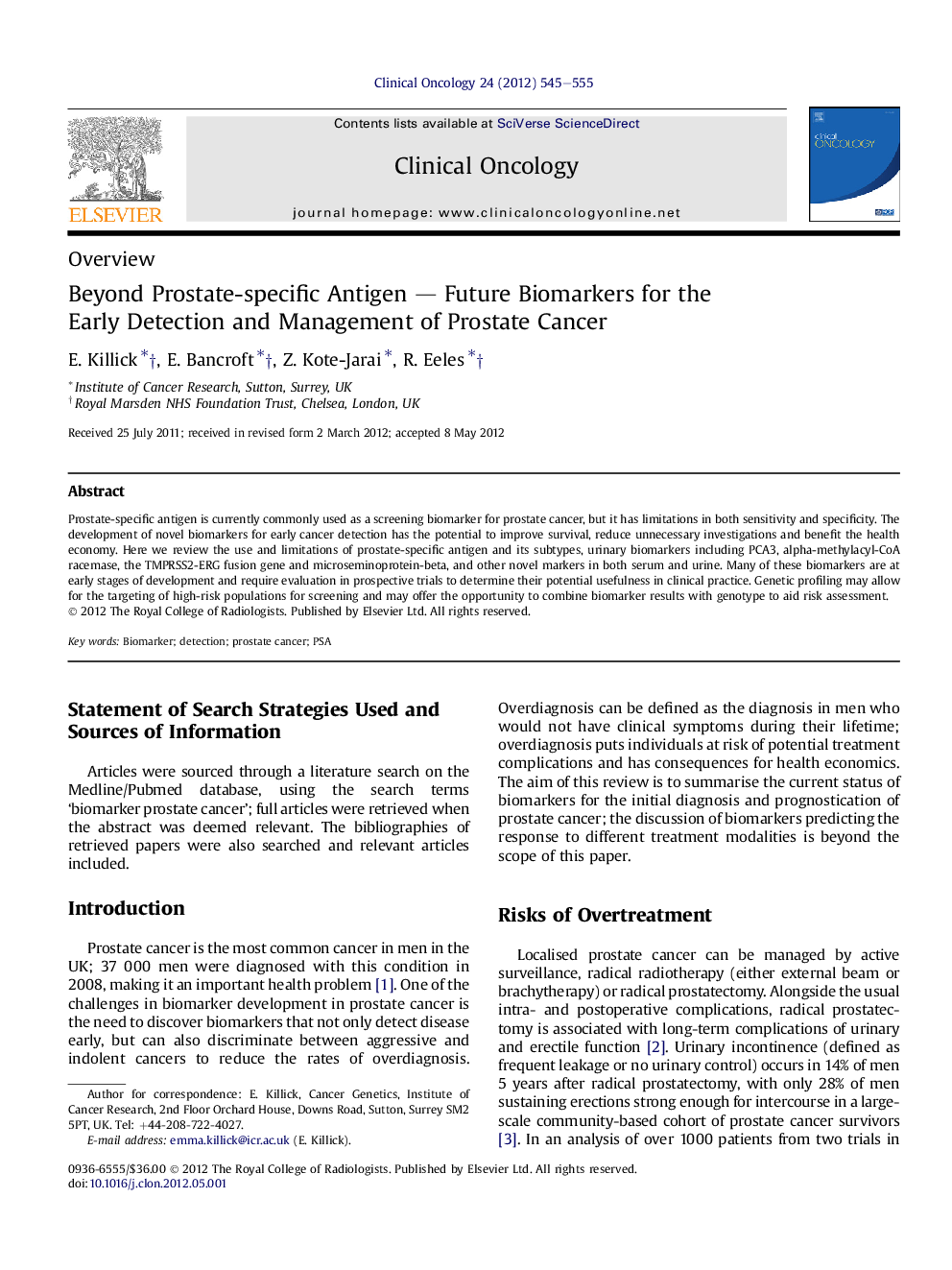| Article ID | Journal | Published Year | Pages | File Type |
|---|---|---|---|---|
| 5699043 | Clinical Oncology | 2012 | 11 Pages |
Abstract
Prostate-specific antigen is currently commonly used as a screening biomarker for prostate cancer, but it has limitations in both sensitivity and specificity. The development of novel biomarkers for early cancer detection has the potential to improve survival, reduce unnecessary investigations and benefit the health economy. Here we review the use and limitations of prostate-specific antigen and its subtypes, urinary biomarkers including PCA3, alpha-methylacyl-CoA racemase, the TMPRSS2-ERG fusion gene and microseminoprotein-beta, and other novel markers in both serum and urine. Many of these biomarkers are at early stages of development and require evaluation in prospective trials to determine their potential usefulness in clinical practice. Genetic profiling may allow for the targeting of high-risk populations for screening and may offer the opportunity to combine biomarker results with genotype to aid risk assessment.
Keywords
Related Topics
Health Sciences
Medicine and Dentistry
Oncology
Authors
E. Killick, E. Bancroft, Z. Kote-Jarai, R. Eeles,
